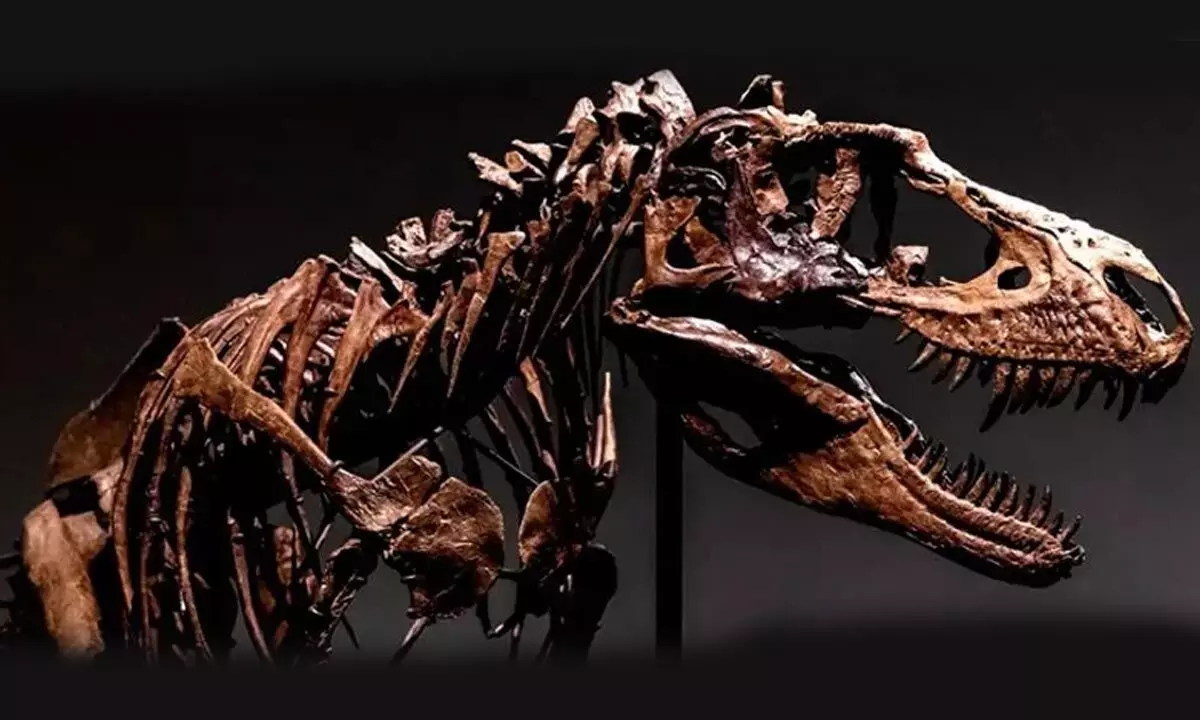Gorgosaurus Fossil Could Bring $8 Million From Auction

Gorgosaurus Fossil Could Bring $8 Million From Auction
- The entire preserved skeleton of a dinosaur called a Gorgosaurus that lived 76 million years ago will be sold at auction on July 28
- The auction house anticipates that it will sell for between US$5 million and $8 million during the presale.
The entire preserved skeleton of a dinosaur called a Gorgosaurus that lived 76 million years ago will be sold at auction on July 28, auction house Sotheby's said on Tuesday.
The Tyrannosaurus rex's smaller cousin measures almost 10 feet tall and 22 feet long in the well-preserved specimen. In 2018, it was located in the Judith River Formation close to Havre, Montana. The auction house anticipates that it will sell for between US$5 million and $8 million during the presale.
There have been a number of high-profile sales in the last several years, but experts say it's difficult to assess whether multimillion-dollar auctions of dinosaur skeletons have increased in frequency.
In 2020, "Stan," a Tyrannosaurus rex skeleton, sold for a record-breaking US$31.8 million. Even well-known people like Nicolas Cage and Leonardo DiCaprio have bid on fossilised dinosaur bones.
However, this well-publicized sale is a part of a troubling trend, according to palaeontologists, in which valuable fossils may actually be lost to research.
Fossils being purchased by private collectors, according to experts in the field, may prohibit the public from viewing and studying them.
Thomas Carr, a paleontologist at Carthage College, the fossil is just one of a small number of Gorgosaurus skeletons ever unearthed in the US; the majority of bones have been found in Canada.
He explained that high-profile sales of dinosaur fossils, like the one of the Gorgosaurus that will soon take place, contribute to the idea that their value is commercial rather than scientific. The knowledge preserved in the bones of extinct dinosaurs gives them value. A scientist would lose a mountain of data by selling one skeleton to a private buyer because sample size is crucial in science.
Paleontologists like Carr worry that if a fossil is privately owned, the owner may refuse to allow the public access to the specimen or resell it, making it harder for researchers to carry out long-term examinations, confirm earlier research, and pose new scientific issues.

















